From homesteading to homeschooling: The Davis family of Oak Hollow Livestock all lend a hand
| Published: 06-17-2024 1:09 PM |
Sara and Carl Davis moved in 2019 to their 25-acre farm on Gould Road in Shelburne. They are the parents of five children and the proprietors of Oak Hollow Livestock, which is more than just a business; it’s a thriving homestead where humans live alongside healthy animals, prioritizing environmental responsibility while engaging in practices like soil regeneration and grazing management. The road to their current situation wasn’t easy, yet the Davises have achieved an ambitious and workable lifestyle.
Some people use their residences for sleeping, storing possessions, and stopping by for a costume change between responsibilities and errands. Not so for the Davises, who raise Boer goats, Maremma sheepdogs, rabbits, and a variety of poultry. They always have at least one llama, and also care for a couple of elderly horses that’ve been in the family for decades. As everyone pitches in, it’s not just adults coordinating the children; the Davis youngsters are astoundingly self-possessed and responsible.
From age 7, Sara Davis grew up on a Goshen dairy farm which had llamas to protect the 40 cows from coyotes. “I discovered that I like how I feel when I’m around animals,” she said. When milk prices crashed in the early 1990s, the cows were sold in favor of focusing on less labor-intensive animals. “We raised, bred, and showed llamas,” said Sara Davis. “I learned about training and behavior through working with about 100 of these peculiar creatures. Llamas are fun; they’re as smart as dogs, but their personalities are more like cats.”
The Goshen farm also had Nubian goats, and at age 16, Davis obtained Oberhasli bottle baby goats. (Bottle baby goats are effectively orphaned due to the fact that their mothers’ milk is diverted to human consumption.) “My goats, Bonnie and Clyde, were entirely my enterprise,” she said. After high school, Davis was one of seven students accepted into a competitive veterinary program at Tufts. Since she was paying for her own education, however, she started at the University of Massachusetts, figuring she could attend Tufts later. Ultimately, the specter of future debt was daunting, so in her sophomore year Davis withdrew from the Tufts track and graduated from UMass in accelerated fashion, having earned an animal science degree with a pre-vet concentration.
During her junior year, Sara met Carl Davis, a student in the same program. They joined forces as spousal farmers, co-founding Oak Hollow Livestock in 2006 on leased land in Baldwinville. Carl Davis grew up on a Templeton farm with dairy cows and Nubian goats. “Carl’s always lived with critters,” said Sara. “He has six siblings, too, including two sets of twins.” Carl Davis is no stranger to living with a lot of activity and many living beings.
Sara and Carl Davis homeschool their children, ages 5, 7, 9, 12 and 13. “Four of our kids attended at least some public school, but we’ve settled on homeschooling. Each child has a different path,” said Sara. Their oldest child and only daughter, Madison, was in public school until the pandemic. “Virtual learning didn’t work well for her,” said Sara, “so we gave her the option of homeschooling. When schools went back to in-person, Madison decided to stay home.” Their second child was already homeschooling, so it wasn’t a foreign concept. ”Our son Nathan, age 12, is very motivated and interested in learning. Homeschooling fits well with our life since I’m mostly home anyway doing the farm. It seems like the best way to offer them everything we can while they’re figuring out who and how they want to be in the world.”
Zachary, age 9, typifies the flexibility of homeschooled children: he loves to bake and plays the clarinet with the Shelburne Falls Military Band. He also has his own rabbit, his own goat, and raises and shows ducks, as well. “A couple of our kids are especially social,” said Sara. “We make sure to get together with other families. Our kids have broad friendships that aren’t confined to classrooms.”
When asked about a typical day, Sara Davis laughed. “We don’t really have typical days,” she said. “With so many animals, though, we do have routines. Madison raises and shows dairy goats; they’re completely her responsibility. She milks them each morning, and when there’s extra milk, she makes cheese. She comes home (from shows) with great big ribbons and prize money … which she uses to buy more goats!” Madison also raises and shows Cayuga and Muscovy ducks, which benefit the farm by helping with insect control. “Ducks love slugs and snails, which host a parasite called meningeal worm,” said Sara, “a parasite that can cause severe neurological damage to small ruminants, which is of particular concern for our goats and llamas.” Each family member has responsibilities. Seven-year-old Gabriel raises Old English Bantam chickens and is responsible for one goat and one rabbit. Even 5-year-old Christopher has clear responsibilities.
Article continues after...
Yesterday's Most Read Articles
Not all of the Davis kids’ learning happens on the farm, however. “Sometimes we go to a natural history museum for six hours,” said Sara. “Or we’ll go to the beach, but we’re exploring and learning the whole time. Kids’ brains don’t shut down outside of school hours; it’s amazing how they can learn when they’re not led to certain conclusions by a curriculum.”
In addition to mentoring their children, Sara and Carl Davis care for the land. They employ methods like silvopasture, which is regaining popularity. “It seems newish, but it’s actually been used for tens of thousands of years,” said Sara. “It’s a natural way to feed goats.” In addition to traditional mixed grass and legume pasture, the goats browse a variety of woody perennial shrubs. According to the Oak Hollow website: “Especially during times when the level of infective parasite larvae on pastures peaks, or during extreme drought conditions, we utilize browse to reduce our herds’ exposure to internal parasites and maintain a high level of nutrition.” The Boer breed of goats originates in South Africa. “They’ve been imported since the mid ’90s,” said Sara, “and have the most meat for their body weight.”
After searching for the best type of dog to protect livestock, the Davises settled on Maremma sheepdogs. “We finally found breeders who raise dogs with the type of temperament we wanted. They’re good with smaller acreage and frequent human interaction,” said Sara. “We have loads of coyotes here, and these dogs offer amazing predator protection.” The Davises are now themselves involved in small-scale breeding of Maremmas.
Sara Davis was drawn to environmentally responsible farming through her love of nature. “I started riding horses at age 3; as a child, I rode for hours on horseback through Goshen woods. Being immersed in the natural world made it part of me. I wanted to protect and foster nature.” The farm’s website explains the concept of soil regeneration: “The direct application of animal manure during grazing increases organic material on our pasture, leading to increased nutrient availability and drought resistance as a result of improved soil health. Preventing overgrazing and the exposure of bare soil helps us lessen the risk of soil erosion and compaction.”
Another important piece of the puzzle is outlined on the website: “We employ management intensive rotational grazing, which provides intense grazing pressure for short periods of time. This leads to more uniform grazing behavior and increases both biodiversity in plant species as well as the amount of forage produced per acre. Because our livestock are frequently moved to a new section of pasture, their exposure to internal parasite larvae is minimized and their level of nutrition is optimized.”
In addition to farming, Carl works at the Greenfield Farmers Cooperative and does woodworking. Sara has other work, too, doing marketing for Fabric of Life, a Shelburne based non-profit founded by local hero Becky Ashenden. “Carl and I are invested in the importance of sharing education and knowledge about farming, and how to connect the next generation with people interested in agriculture. Carl saw a job post for Fabric of Life and said, ‘This is your skill set,’ since I’d done marketing for an international company. I wasn’t exactly looking for a job, but it really is a perfect fit.”
Sara Davis has seen a lot of farmers age out, their skills dying with them, so she’s a believer in the Fabric of Life mission of helping traditional skills flourish in our modern world. In terms of what’s next for Oak Hollow Livestock, “we’d love to get into pasture raised pork,” said Sara Davis, “and to start a meat CSA program. And we want to offer more outreach and teaching, both for (non-farmers) to get to know where food comes from, and for other farmers and homesteaders. I’d like to share experiences of things I learned the hard way, to increase others’ chances of success.”
For more information: www.oakhollowlivestock.com
Eveline MacDougall is the author of “Fiery Hope.” To contact: eveline@amandlachorus.org.

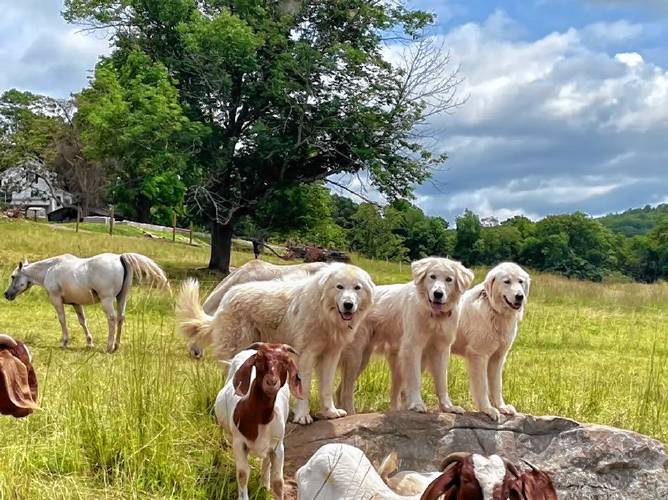
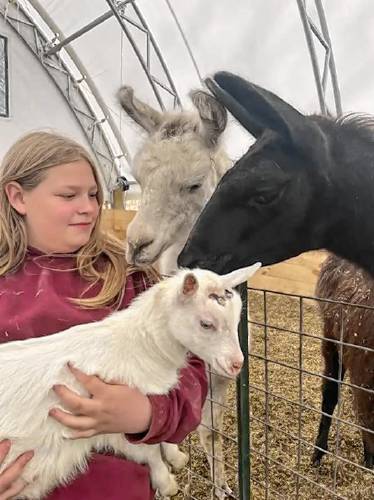
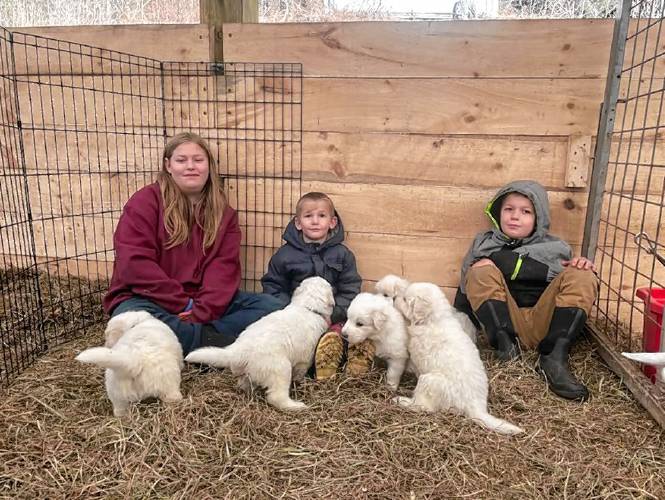
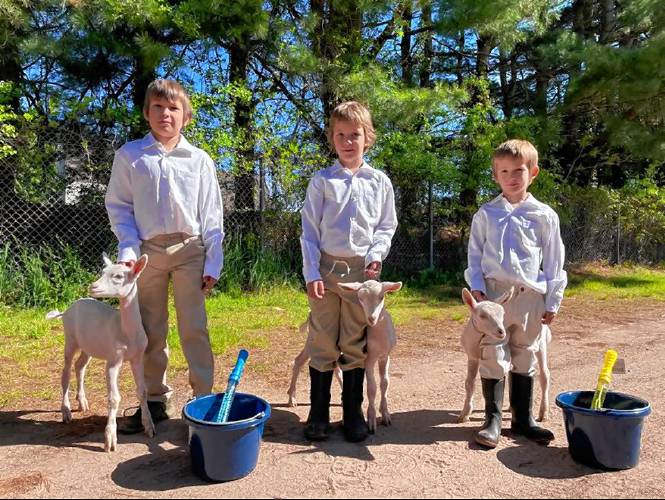
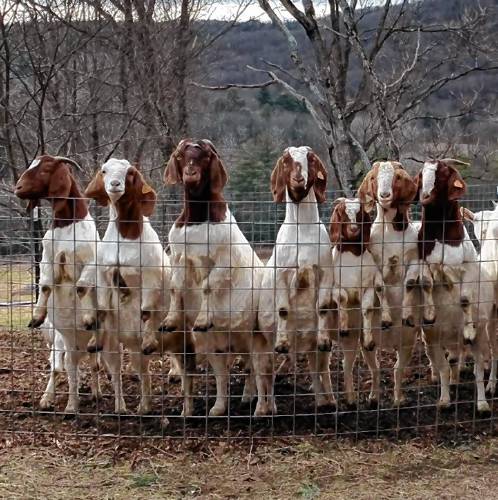
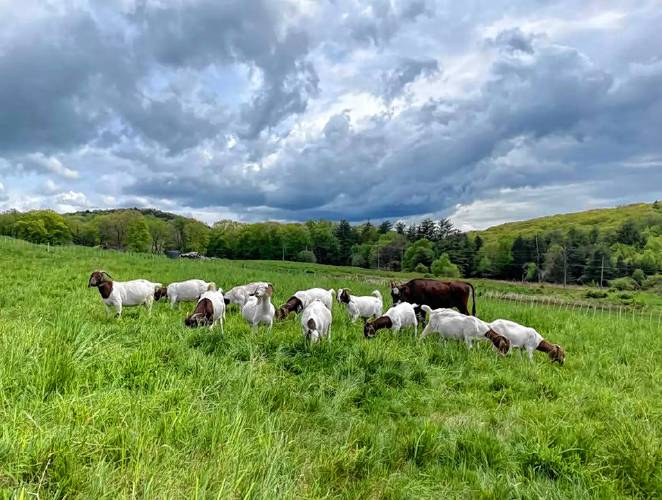





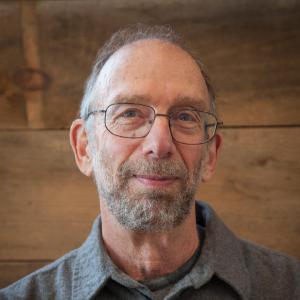 Putting the students front and center: What can education can look like without high stakes testing?
Putting the students front and center: What can education can look like without high stakes testing? Sounds Local: He’ll play anything you want: Stephen Kellogg will perform an all-request show at Shea Theater, Dec. 19
Sounds Local: He’ll play anything you want: Stephen Kellogg will perform an all-request show at Shea Theater, Dec. 19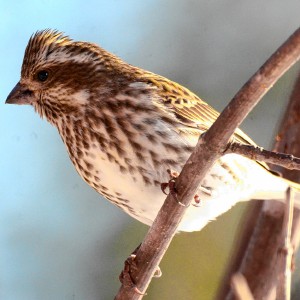 Speaking of Nature: Introducing the Birch Perch II: Making improvements to my bird observation venue
Speaking of Nature: Introducing the Birch Perch II: Making improvements to my bird observation venue Conversations over candy-making: Sharing beloved holiday food traditions
Conversations over candy-making: Sharing beloved holiday food traditions
